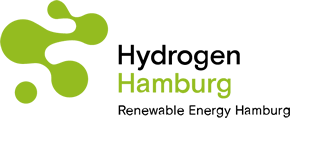Details
Hydrogen in France: sluggish ramp-up based on nuclear power From Hamburg to the World: EEHH trip to Hyvolution Paris
Hyvolution Paris is a leading international hydrogen trade fair that has been organised by GL events Exhibitions in collaboration with France Hydrogène for the past eight years.

Hyvolution Paris is a leading international hydrogen trade fair that has been organised by GL events Exhibitions in collaboration with France Hydrogène for the past eight years.
Over 600 exhibitors used the opportunity to showcase exciting hydrogen technologies for storage, production and application in mobility and industry.
The EEHH Cluster Agency (represented by Sibyl Scharrer, International Hydrogen Cooperation) had a stand in the H2 Associations Joint Pavilion, along with hydrogen networks/cluster agencies from Germany (Bavaria), Poland, Scotland, Spain and Hungary, for example. During personal discussions and a technical presentation, the EEHH Cluster Agency Hamburg introduced itself to the international trade fair visitors as a European import and distribution hub for green hydrogen. The opportunity to share experiences with other countries/regions also confirmed that Hamburg is already playing a pioneering role in Europe, as the hydrogen ramp-up is gaining momentum along the entire value chain: from hydrogen production (Hamburg Green Hydrogen Hub) and hydrogen infrastructure (Hamburg Hydrogen Industry Network), to the import of hydrogen and derivatives (New Energy Gate and Hamburg Blue Hub) and specific plans for hydrogen applications (tesa).

Hyvolution Paris also provided a good insight into the French vision and current status of the country’s hydrogen economy. In France, large corporations and medium-sized enterprises are all involved in actively building the hydrogen industry. According to VIG’HY, there are currently 200 hydrogen projects of varying sizes across the entire value chain. Mega-projects such as giga-factories for fuel cells and the production of green hydrogen at different locations will be completed by 2030/35. At the same time, off-takers are experiencing hesitant demand, as green hydrogen is still very expensive and not widely available.
This is compounded by the fact that several hydrogen projects have experienced difficulties securing financing. Investors and banks are somewhat reluctant to provide money or loans due to high interest rates and the unpredictability of the sector. As part of its National Hydrogen Strategy, France is committed to the production of carbon-free hydrogen, not only from renewable energies but also from nuclear power. France currently operates 56 nuclear power plants at 18 locations. The plan is to use this high proportion of nuclear power primarily to supply hydrogen technologies, especially electrolysers.
Despite the slow growth of the hydrogen industry, the mood at the trade fair was buoyant and many participants remain optimistic about future developments. Many French regions presented their individual strategies. Normandy, for example, is focusing on port conversion and offshore hydrogen production. Germany was the country with the second largest share of exhibitors and visitors after France. EEHH members including Hydac, Dräger, Lhyfe and Elogen also exhibited at the event.


